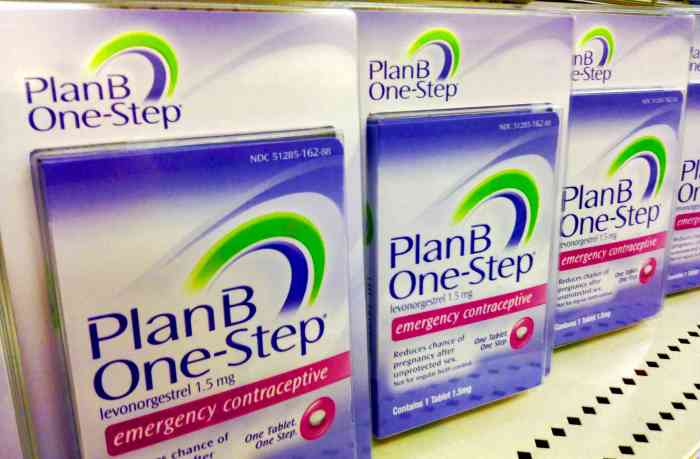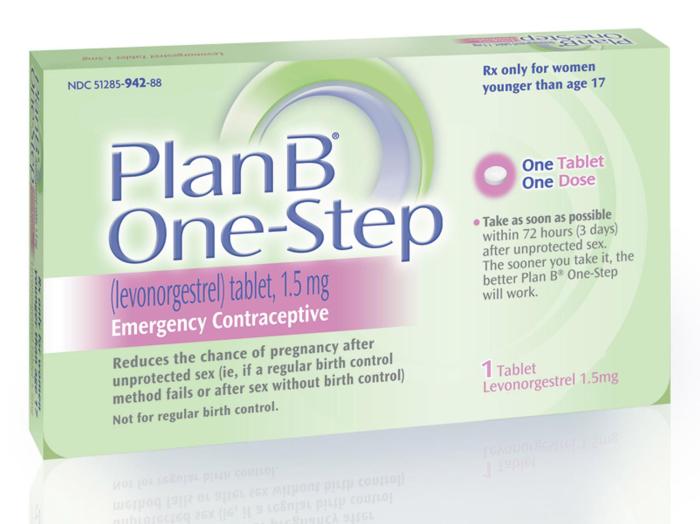The emergency contraceptive brand crossword clue holds the key to uncovering the secrets of preventing unwanted pregnancy. From Plan B to ellaOne, the realm of emergency contraception encompasses a range of options that empower individuals to take control of their reproductive health.
This comprehensive guide delves into the intricate mechanisms of emergency contraceptives, exploring their effectiveness rates, potential side effects, and ethical considerations. Dive into the world of emergency contraception and unravel the crossword clue that holds the answers.
Emergency Contraceptives: Emergency Contraceptive Brand Crossword Clue

Emergency contraceptives (ECs) are medications that can prevent pregnancy if taken within a certain time frame after unprotected intercourse or contraceptive failure. They are also known as “morning-after pills” or “postcoital contraceptives.”
Brand Names of Emergency Contraceptives
- EllaOne (ulipristal acetate)
- Levonorgestrel (Plan B One-Step, Take Action, AfterPill, My Way, Option 2)
- Plan B One-Step (levonorgestrel)
- Take Action (levonorgestrel)
- Ulipristal acetate (EllaOne)
Mechanism of Action
ECs work by preventing or delaying ovulation, the release of an egg from the ovary. They can also prevent fertilization of the egg if ovulation has already occurred. ECs are most effective when taken within 72 hours of unprotected intercourse, but they can still be effective up to 5 days afterwards.
There are two main types of ECs: levonorgestrel-only ECs and ulipristal acetate ECs. Levonorgestrel-only ECs work by preventing or delaying ovulation, while ulipristal acetate ECs can also prevent fertilization if ovulation has already occurred.
ECs are not 100% effective, but they are very effective when taken correctly. The effectiveness of ECs depends on the type of EC used and when it is taken.
Dosage and Administration
ECs are available over-the-counter or by prescription. They are typically taken as a single dose, but some ECs require two doses taken 12 hours apart.
It is important to take ECs as soon as possible after unprotected intercourse or contraceptive failure. The sooner they are taken, the more effective they will be.
Side Effects and Risks
ECs are generally safe and well-tolerated, but they can cause some side effects, such as:
- Nausea
- Vomiting
- Abdominal pain
- Headache
- Breast tenderness
- Menstrual changes
In rare cases, ECs can cause more serious side effects, such as:
- Ectopic pregnancy
- Blood clots
- Ovarian cysts
Availability and Accessibility, Emergency contraceptive brand crossword clue
ECs are available over-the-counter in most countries. In some countries, they are only available by prescription.
There are no restrictions on the availability of ECs in the United States. However, some insurance plans may not cover the cost of ECs.
Cultural and Ethical Considerations
The use of ECs is controversial in some cultures. Some people believe that ECs are a form of abortion, while others believe that they are a necessary form of contraception.
There is no consensus on the ethical implications of ECs. However, it is important to respect the beliefs of others and to make informed decisions about whether or not to use ECs.
Essential Questionnaire
What is the most effective emergency contraceptive?
EllaOne is the most effective emergency contraceptive, with a success rate of up to 98% when taken within 72 hours of unprotected intercourse.
What are the side effects of emergency contraception?
Common side effects of emergency contraception include nausea, vomiting, abdominal pain, fatigue, and irregular bleeding.
Where can I get emergency contraception?
Emergency contraception is available over-the-counter at most pharmacies and health centers.


